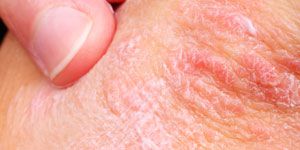Article
Dendritic Cells Affect Onset and Progress of Psoriasis
Author(s):
As reported in the EMBO Molecular Medicine journal, researchers have discovered there are several types of dendritic cells within human skin that play a role in both the earlier and more advances stages of psoriasis.

As reported in the EMBO Molecular Medicine journal, researchers have discovered there are several types of dendritic cells within human skin that play a role in both the earlier and more advanced stages of psoriasis.
Scientists suggest that a novel approach for treatment could be to implement newer strategies to regulate dendritic cell composition in psoriatic skin lesions. An autoimmune disease affecting nearly 125 million people around the world, psoriasis symptoms typically include mild to severe red, inflamed skin lesions.
Maria Sibilia, PHD, a professor at the Medical University of Vienna, Austria, EMBO member and one of the study’s lead authors, said, “We urgently need new ways to treat psoriasis, treatments that will deliver improved benefits to patients and reduce the incidence of known side effects for existing drugs.”
“Our experiments have revealed that increases in the number of plasmacytoid dendritic cells are important early triggers of the disease while other types of dendritic cells, the Langerhans cells, help to protect the balance of the immune response that is established during inflammation of the skin,” Sibilia continued.
Utilizing mice as models for psoriasis, researchers observed increased accumulation of plasmacytoid dendritic cells within psoriatic lesions. However, they also noted significantly decreased levels of Langerhans cells in the same lesions. Plasmacytoid dendritic cells are reported to penetrate damaged tissue during the early phases of psoriasis. Experts suggested that it is possible decreased levels of plasmacytoid dendritic cells in early stages of the condition could have resulted in suppressed symptoms. Comparably, Langerhans cells primarily keep a suppressive skin environment, and if kept strengthened, psoriatic lesion progression could be halted.
As current applied systemic treatments often produce frequent side effects, further therapeutic exploration is a step in the right direction.
Sibilia commented in a news release, “The changes in the severity of symptoms we have observed related to changes in the composition of dendritic cells most likely impact the balance of inflammatory mediators at the site of disease. It may well be that by introducing favourable compositions of dendritic cells at the early stages of psoriasis we may be able to help reduce the effects of psoriasis by achieving a better balance of these mediators at the site of the disease. Further work is needed before we can say with any certainty if such an approach will lead to a viable clinical treatment for psoriasis.”





